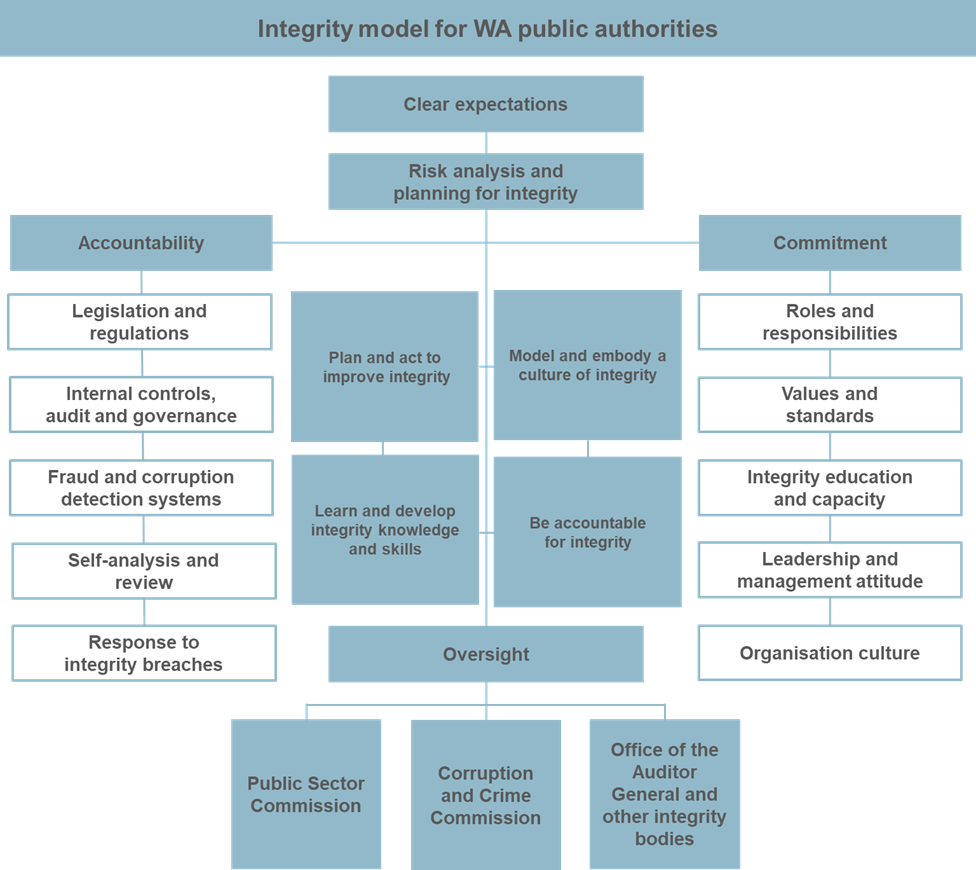An integrity framework describes the instruments, structures and cultural factors that guide how an authority and its officers practice, manage and account for integrity.
Many authorities already have some instruments (like integrity policies and procedures), structures (like an audit committee) and cultural factors (like values) in place. Each is an important part of their approach to integrity.
It is said that the whole is greater than the sum of its parts. Preventing misconduct and corruption is most effective when instruments, structures and cultural factors work together. So coordinating an authority’s efforts – through a comprehensive framework – is key.
How an authority manages and accounts for integrity must align with what is actually practiced by officers on the shop floor. Reports from Australian and international integrity bodies tell us that what is written and said about integrity is not always what is done. For integrity to be truly embedded it must be lived by everyone every day.
In practical terms, a framework includes, but is not limited to, a collection of documents describing an authority’s approach to integrity. It needs to be monitored, reviewed and improved.
The Integrity Framework Template and Guide are based on the model from the integrity strategy.
The template and guide should be read together.
Each authority’s framework needs to be practical for its own circumstances – developed and contextualised for its legislative and operating conditions and risk profile. For example, an authority may have actions and initiatives sitting across a number of functional areas. In this case, the framework is about coordinating these actions and consolidating efforts to improve the approach.
Importantly, a framework helps an authority head – who is ultimately accountable for integrity – to set integrity expectations and have oversight and confidence that integrity is being appropriately practiced, managed and accounted for.
Designing and maintaining a framework requires leadership buy-in, time and commitment to implement and continuously improve. The benefits of having a strong approach to integrity outweigh the effort involved and possible damage to the community’s trust in the WA government sector when integrity is lost.



